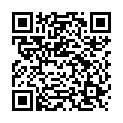|
|
|
| Module code: MAB-4.5 |
|
7V (7 hours per week) |
|
10 |
| Semester: 4 |
| Mandatory course: yes |
Language of instruction:
German |
Assessment:
Written exam
[updated 12.09.2004]
|
MAB-4.5 Mechanical and Process Engineering, Bachelor, ASPO 01.10.2004
, semester 4, mandatory course
|
105 class hours (= 78.75 clock hours) over a 15-week period.
The total student study time is 300 hours (equivalent to 10 ECTS credits).
There are therefore 221.25 hours available for class preparation and follow-up work and exam preparation.
|
Recommended prerequisites (modules):
None.
|
Recommended as prerequisite for:
|
Module coordinator:
Prof. Dr. Bernd Heidemann |
Lecturer:
Prof. Dr. Bernd Heidemann
Prof. Dr. Harald Altjohann
Prof. Dr.-Ing. Dr. h.c. Peter Lorenz
[updated 17.08.2012]
|
Learning outcomes:
Students will become acquainted with the structure, function and important properties of complex constructional elements and will learn how to design and dimension such elements.
Students will also learn about designing product modifications and creating variant designs as part of the process of developing a technical product.
[updated 12.09.2004]
|
Module content:
1. Introduction: Technical products and product lifetimes
2. The useful-life phase – utility and prestige value
3. General work methodology as a basis for the product development process
4. The technical product as a technical system
5. Elements of technical products
5.1 Overview and basic physical effects
5.2 Inter-component connections (guides, shaft-hub connections), pre-stressed bolted connections, dynamic loading) Springs
5.4 Couplers
5.5 Friction gears
5.6 Toothed gearwheels and toothed gearing systems
5.7 Design and bearing capacity of spur and bevel gearwheels
5.8 Modern drive systems
5.9 Chain drives
5.10 Belt drives
5.11 Pipes and pipelines
[updated 12.09.2004]
|
Teaching methods/Media:
Accompanying course notes
[updated 12.09.2004]
|
Recommended or required reading:
1. Haberhauer, Bodenstein- Maschinenelemente, Springer Verlag
2. Decker- Maschinenelemente, Hanser Verlag
3. W. Krause-Konstruktionselemente, Hanser Verlag
4. W. Beitz- Dubbel-Taschenbuch für den Maschinenbauer
5. Roloff/Matek: Maschinenelemente
6. Ehrlenspiel: Integrierte Produktentwicklung, Hanser Verlag
7. EU DIN standards, ASME-USA
[updated 12.09.2004]
|


